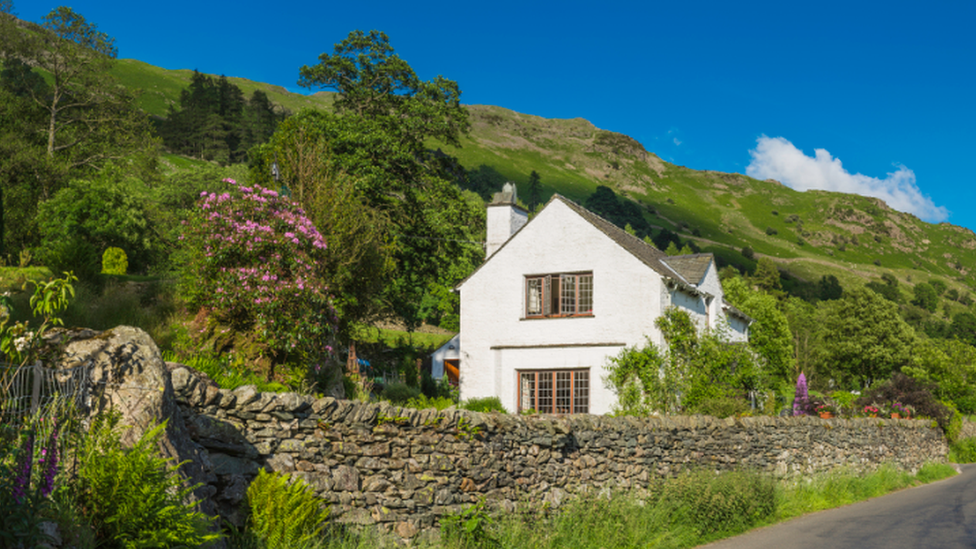'Holiday lets are pricing us out of homes'
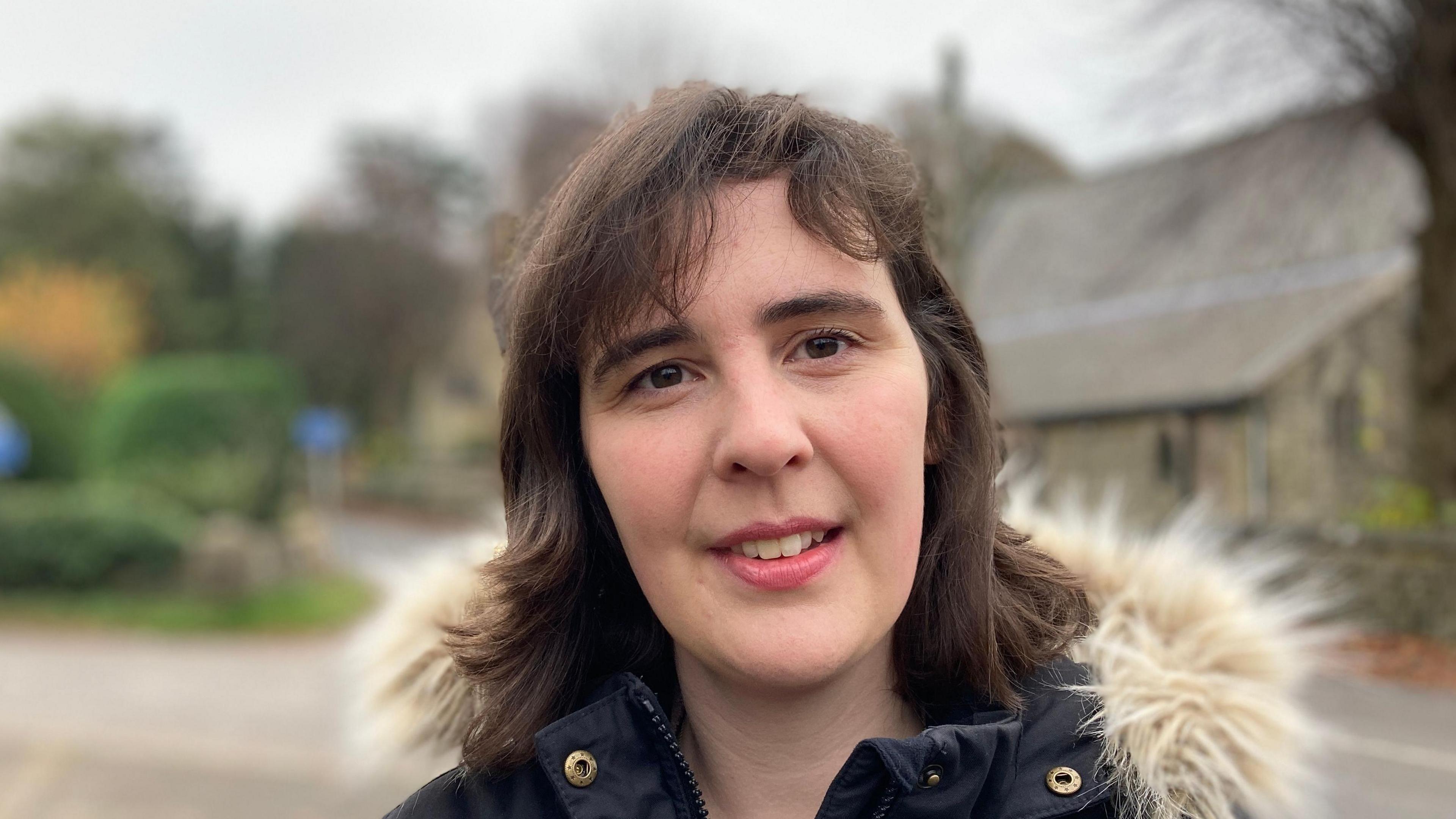
Dee Goddard says she is at the point of "giving up" finding a family home in the Derbyshire Dales
- Published
The Derbyshire Dales takes up much of the Peak District National Park, and sits near four major UK cities - Manchester, Sheffield, Derby and Nottingham.
Due to its prime location and natural beauty, it has become a popular spot for families, visitors and tourists alike - particularly since the coronavirus pandemic with fewer people travelling abroad.
But like residents in Cornwall and Yorkshire, families in this similarly idyllic part of England are struggling to get a foot on the housing ladder, with a rising number of properties being used as second homes and holiday lets.
One family told the BBC that the housing shortage - affecting availability and affordability - has pushed them to the point of "giving up".
The irony is not lost on Dee Goddard, who grew up "down south", when she says that she originally moved to the area because "we thought it would be a cheaper option".
The 31-year-old has lived in the Derbyshire Dales, in the village of Curbar, with her son and husband Baris for a couple of years.
Dee and her husband, who both work at the University of Sheffield, currently spend more than 50% of their income on rent and council tax, excluding bills, so saving for the future - as well as finding a suitable home to buy - has proven "very difficult".
"We have a one-year-old son, we'd love for him to grow up here, all our friends are here, we're very embedded in the local community, we attend church here, but it's really difficult to find anything that's affordable," she says.
Dee says before the coronavirus pandemic, it was much easier to find somewhere to raise a family.
"I have notifications on my phone of the properties that become available, and there are just so few," she says. "At the moment it's just impossible - we're being priced out."
'It's really quiet'
The average house price in the Dales last year was £350,548, according to the UK House Price Index, compared to £270,733 in the neighbouring High Peak, which is also a tourist hotspot.
And recent figures from Derbyshire Dales District Council show there were 35,595 residential properties in the area in May 2024. In October, 1,053 of these were second homes, while 1,302 were holiday lets.
However, in some villages in the Dales, the Local Democracy Reporting Service (LDRS) says second homes and holiday lets make up a quarter of all residential units.
The LDRS also recently quoted a report in The Times and Inside Airbnb, which found the district had one of the strongest concentrations of Airbnbs in the Midlands.
Dee says: "Tourism benefits everyone - there's local jobs promoted by tourism - but at what cost?
"A couple of the houses near us are all holiday homes, so it's really quiet. There aren't people at the play group for me to hang out with, because there aren't people here.
"We have to think about the balance between tourism and people actually living in the villages that give them their soul and heart, because people otherwise are going to be visiting and there will be no village community for them to enjoy."
She added: "I think we're at the point of giving up already. It's really sad to think of, because all our friends are here, and you imagine your child going to the school near where you live."
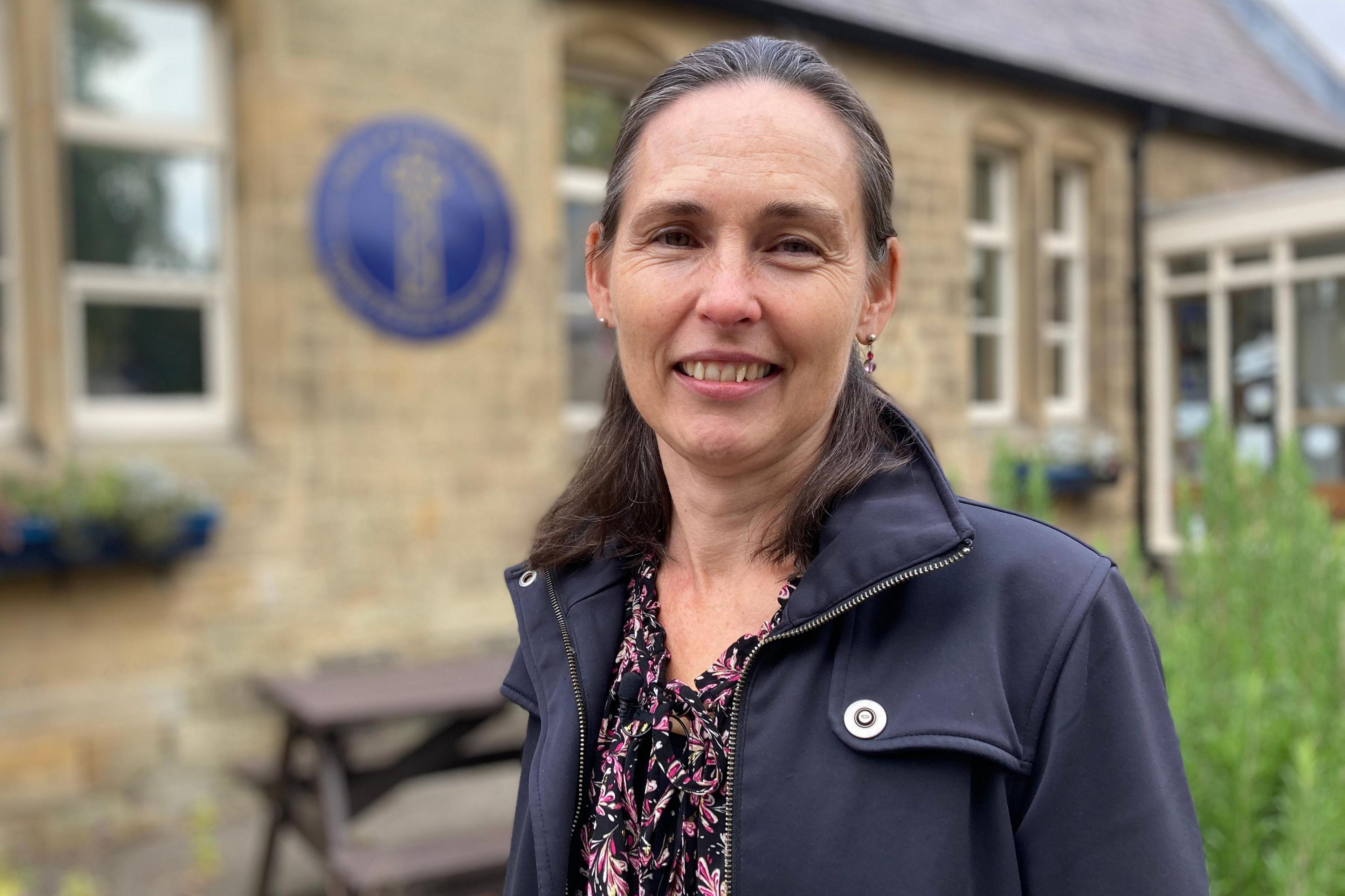
Head teacher Oona Gilbertson says a lack of available housing for families is a factor in reducing pupil numbers in the village of Eyam in recent years
Three miles away, the head teacher of Eyam CE Primary School - Oona Gilbertson - is concerned about falling pupil numbers in recent years. The school currently has 70 children.
She says: "We get quite a few people who look round the school, who think they are going to move into the local area.
"Then, they cannot find anywhere to rent and certainly cannot find anywhere to buy, and they have to go elsewhere. That makes it difficult to predict how many children we are going to have in the school the following year and that affects the budget."
While there is clearly an appetite from families to buy, plenty of others want to holiday in the Dales and are looking for places to stay.
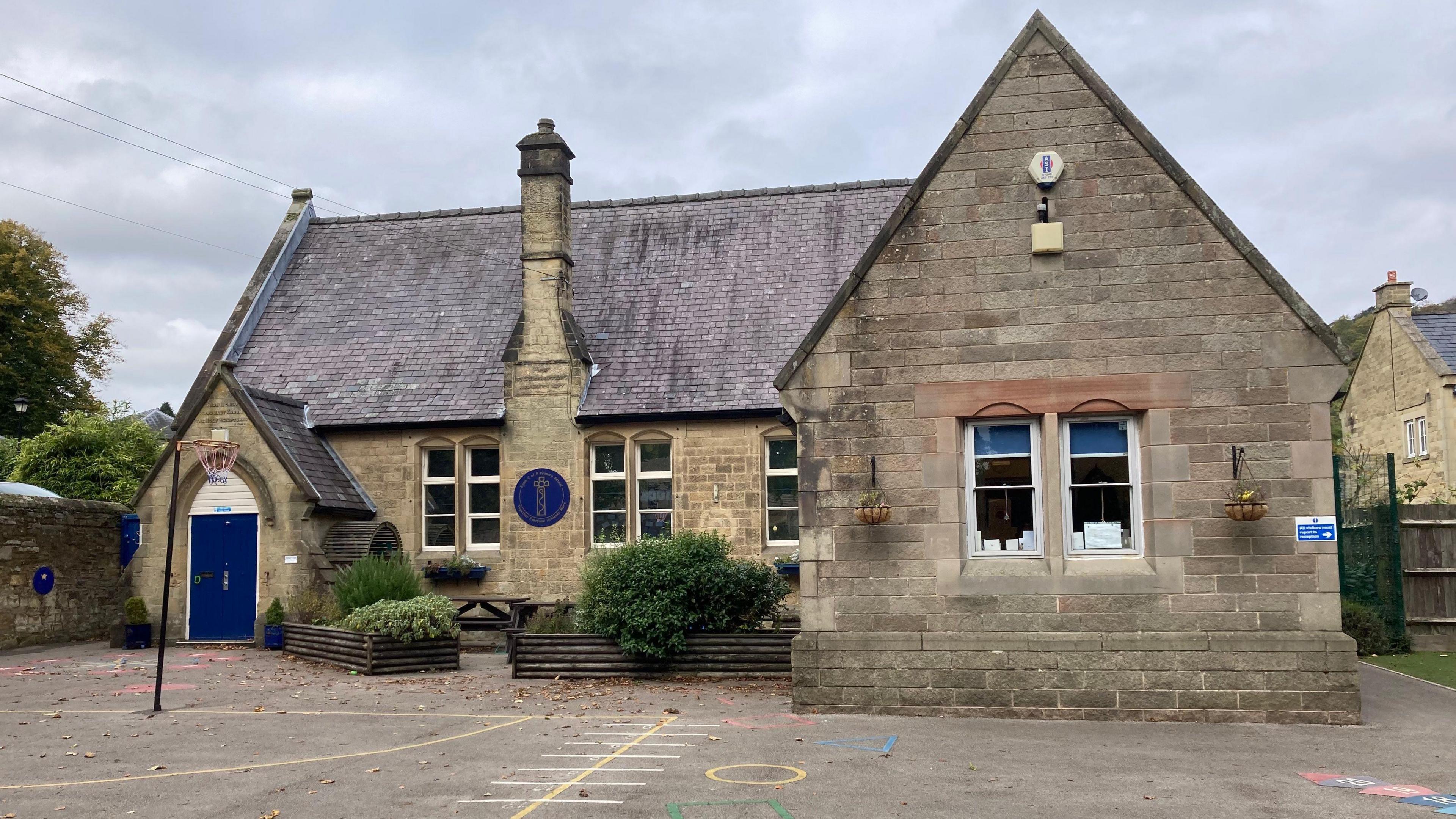
Eyam CE Primary School currently has 70 pupils
Among those are self-catered holiday homes, and Justin Heslop - the director of Peak Venues - has about 75 of them across the Peak District.
He says: "The self-catering holiday cottage market is essential to the local economy and area.
"There are thousands of people who come every week, as we know when you're at home, you're not going out to the cafes, pubs, restaurants three or four times a week, but the people that come to holiday cottages do - and I think without those, the businesses would be really struggling."
Visit Peak District and Derbyshire claims tourism is worth £2.89bn to the Peak District and Derbyshire, supporting 28,000 direct jobs.
Speaking about his properties, Justin says his firm's unique selling point is catering for large celebrations.
He says: "We realised that there were some big properties that no-one really wants because of energy costs etc., and if you've got a party for 30 or 40 people, you can't do that in your own home, so I don't think we're necessarily taking houses off the market for the people that need them."
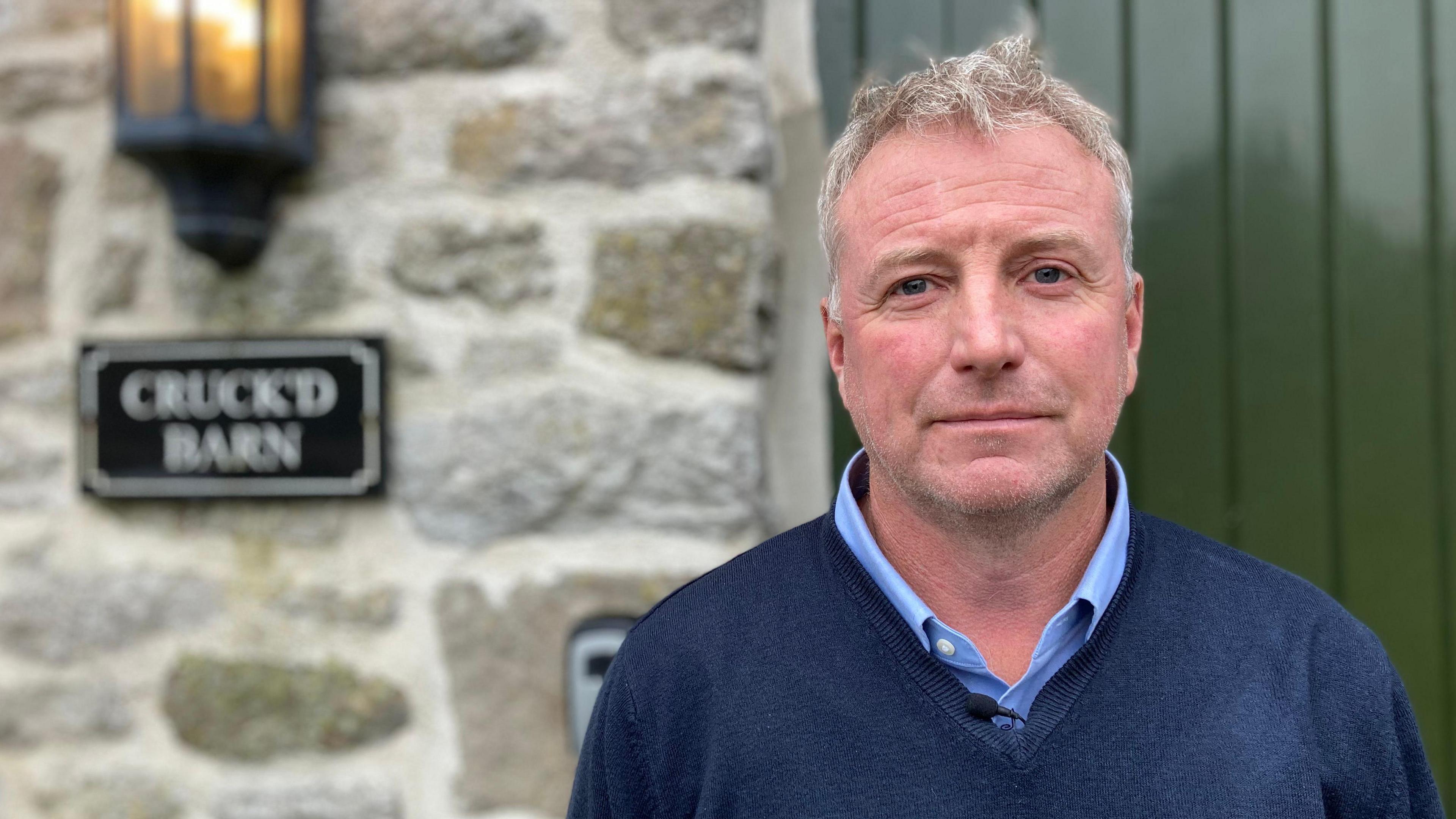
Justin Heslop, from Peak Venues, started operating holiday homes in 2006
A number of measures and restrictions have been suggested, including Derbyshire Dales District Council voting to increase council tax for people with second homes - but not holiday cottages.
Other restrictions - backed by the previous Conservative government - would make it mandatory for homeowners to apply for planning permission to turn their property into a holiday let.
The district council has urged the new Labour administration to bring this legislation to the House of Commons.
Meanwhile, Airbnb has also backed, external proposed rule changes, but claimed travel via the US online rental platform had generated £26m and supported more than 425 jobs in the Dales last year.
Justin believes that measures would balance things out.
"A lot of people came into this market in Covid, when there was a lot of demand because people were not going abroad," he says.
"With the registration... it needs to be really thought [out] and not us v them, it wants to be people from my industry and people from the authorities looking at what can be done best."
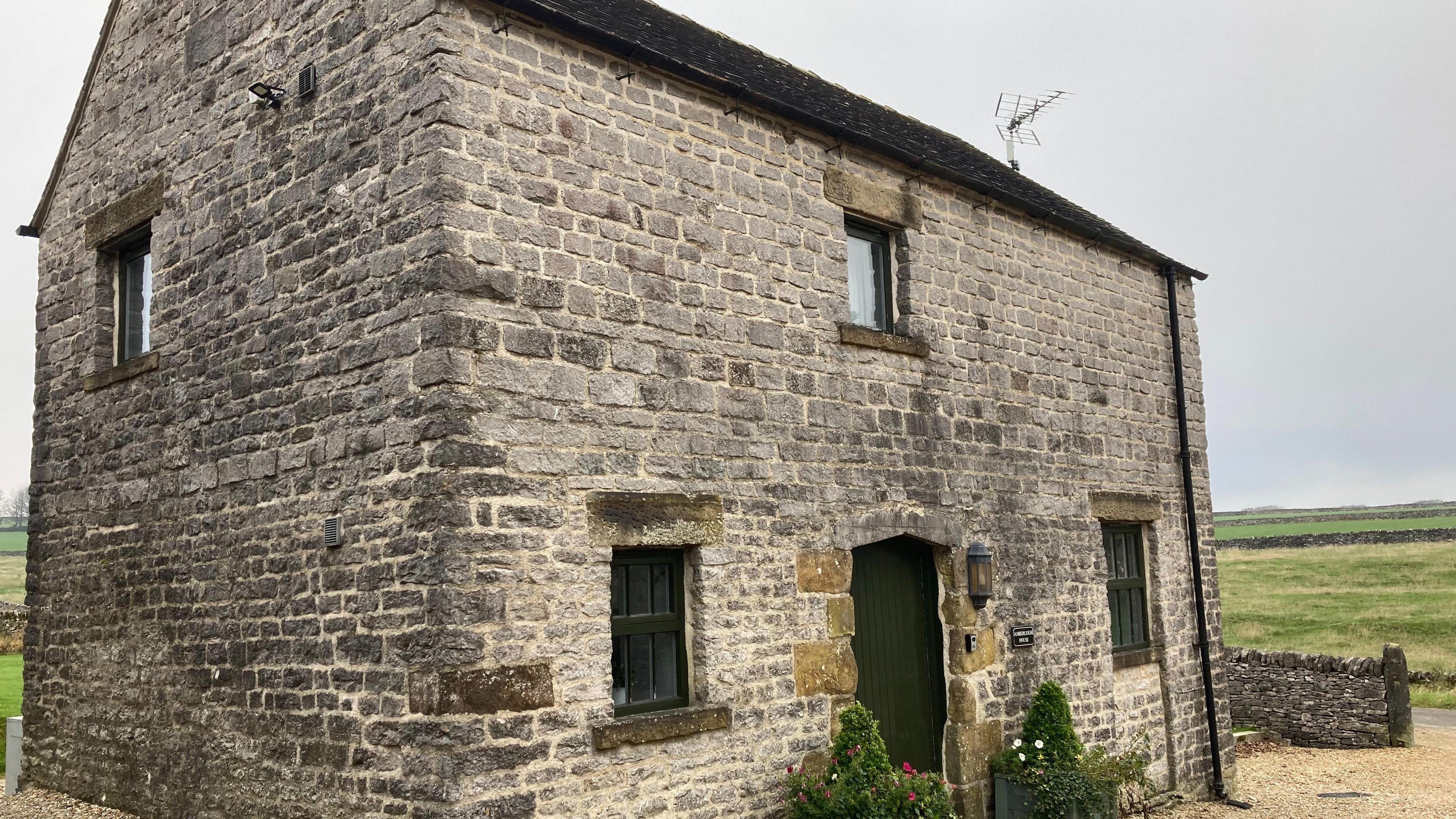
A holiday home in the Derbyshire hamlet of Hurdlow
One district councillor told a recent meeting he was aware of a property owner who spends just two days a year in the area, living the rest of the time in Chicago.
Fellow district councillor Peter O'Brien, who represents the Hathersage ward, said the authority had urged the new Labour government and Deputy Prime Minister Angela Rayner - who has the housing brief as part of her portfolio - to bring the previously-proposed legislation into operation.
He says: "At the moment there is no restriction on anyone turning their house into a holiday home or a second home. In places like Eyam, we have got somewhere between 15% and 20% of the dwellings not in permanent habituation."
He says if people had to apply for planning permission to turn a property into a holiday home, it would "give control" to communities to get the right balance between providing accommodation, housing for local people and encouraging tourism.
"Tourism is a vital part of our local economy, but if we let it go too far in that direction, we end up with our communities being hollowed out," he says.
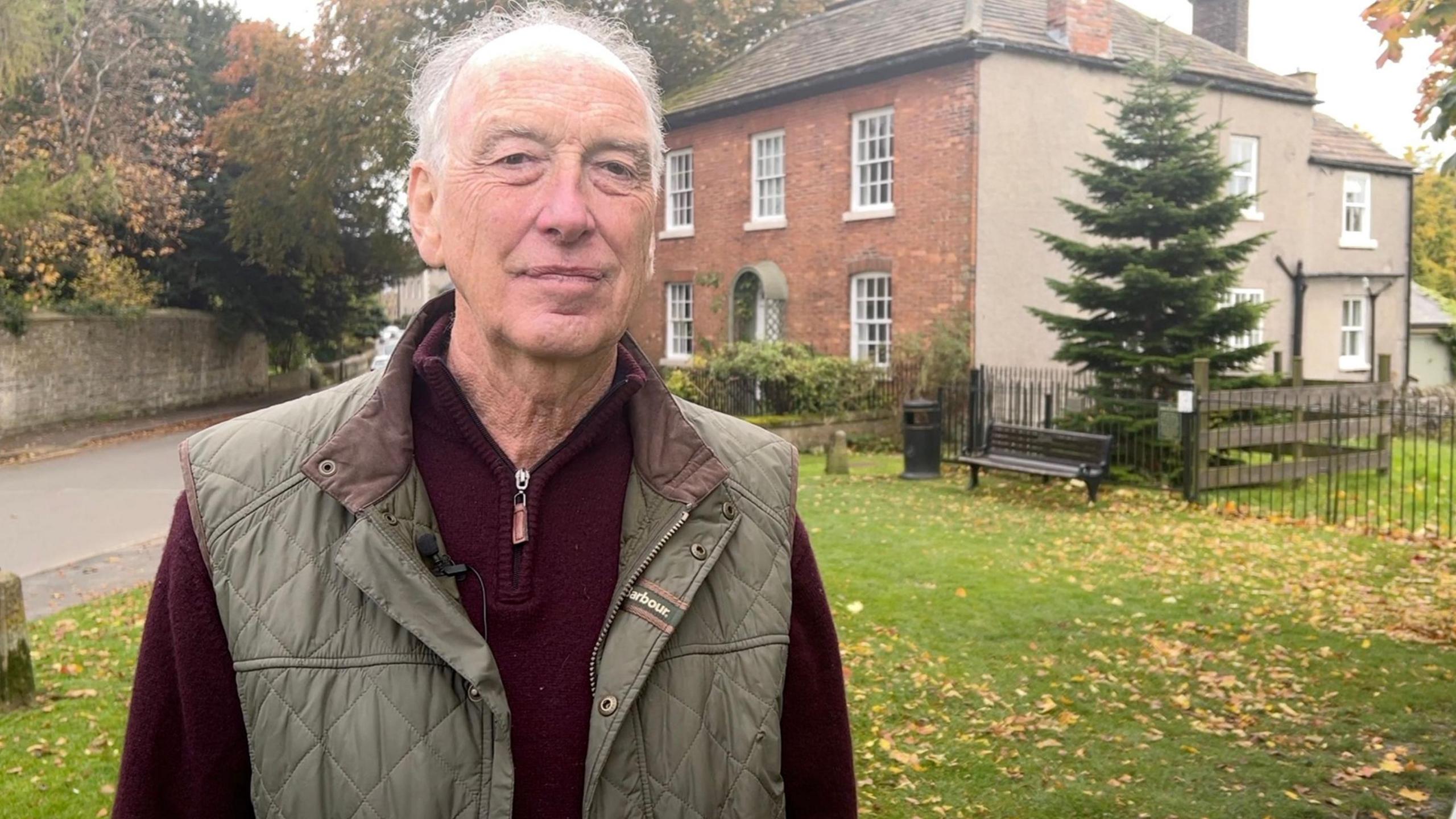
Councillor Peter O'Brien is backing more regulation of the holiday home sector
In a statement to the BBC, the Ministry of Housing, Communities and Local Government said: "We know large numbers of holiday lets can have significant impacts on areas like Derbyshire. That is why we are introducing a registration scheme for short-term lets and removing tax incentives for landlords to protect communities.
"However, we recognise that more needs to be done, which is why we are considering additional powers for councils to enable them to respond to pressures created by short-term lets."
In response, Peter O'Brien pledged to continue to press the government to use planning laws to regulate the holiday home industry.
For Dee Goddard, she hopes people in the future will not be in her position.
"The holiday homes themselves aren't that bad, it's just the number of them," she says.
"The question really is - what do the holiday homes lead to? And if they lead to more empty villages, our schools closing down, then it's not worth it."
Additional reporting by Eddie Bisknell, Local Democracy Reporter
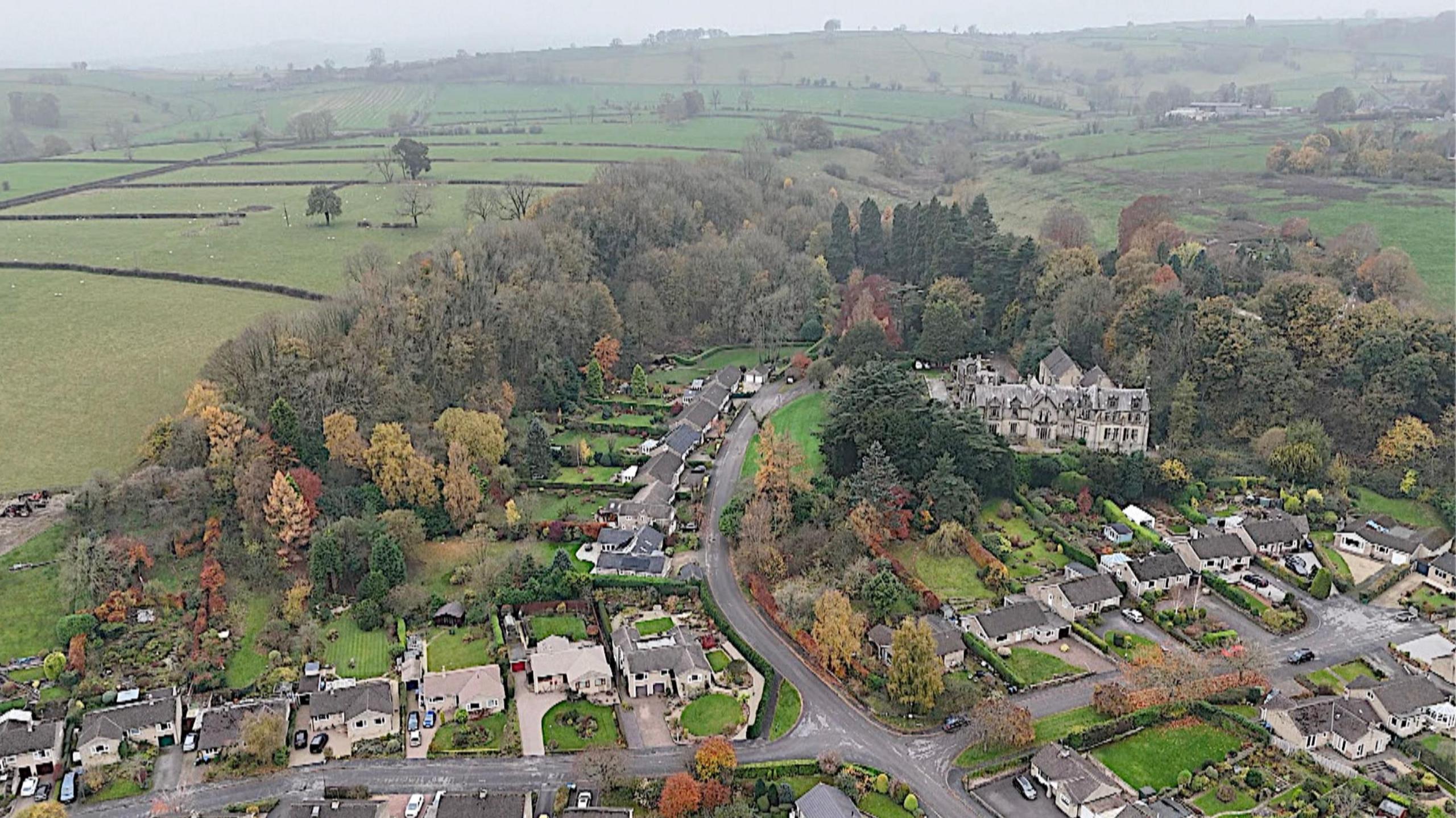
The town of Bakewell is one of many holiday locations in the Derbyshire Dales
Get in touch
Tell us which stories we should cover in Derby
Follow BBC Derby on Facebook, external, on X, external, or on Instagram, external. Send your story ideas to eastmidsnews@bbc.co.uk, external or via WhatsApp, external on 0808 100 2210.
- Published7 August 2024

- Published16 March 2024
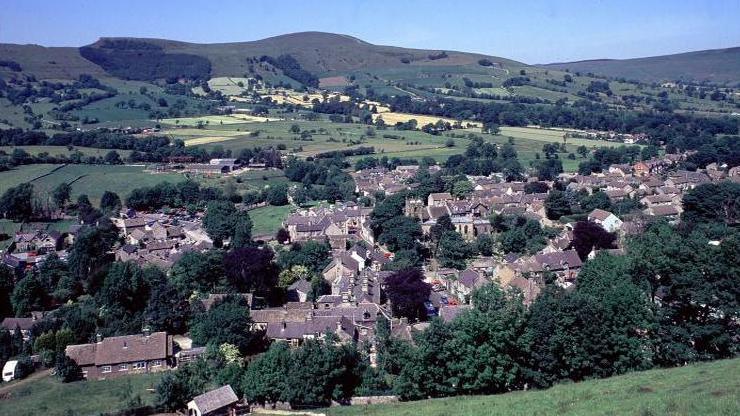
- Published22 February 2022
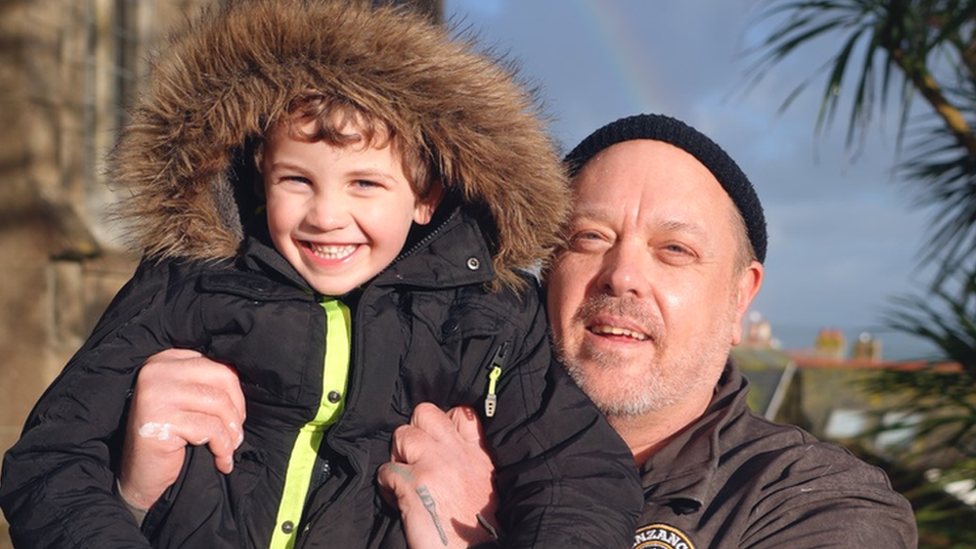
- Published24 October 2024
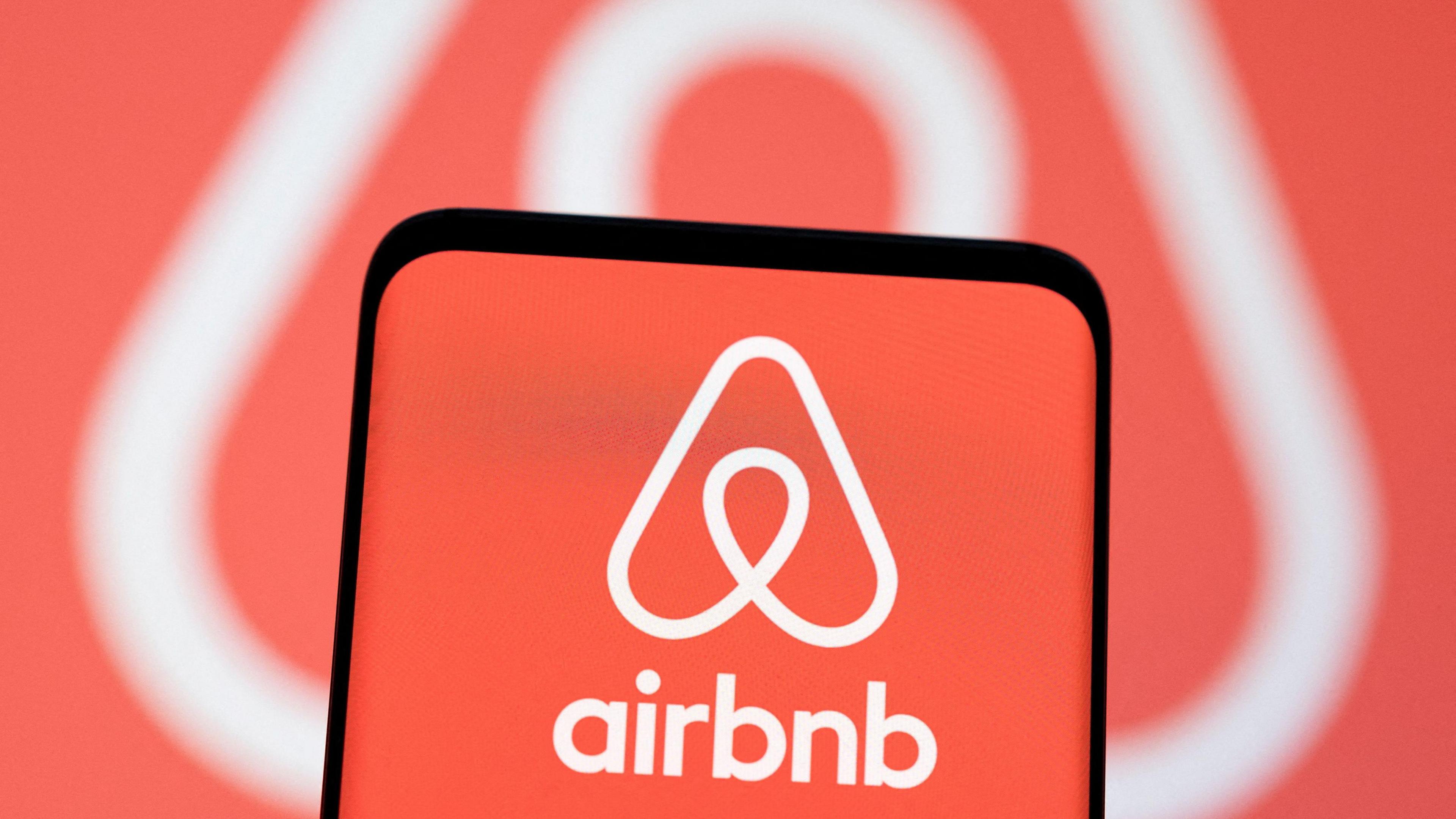
- Published19 February 2024
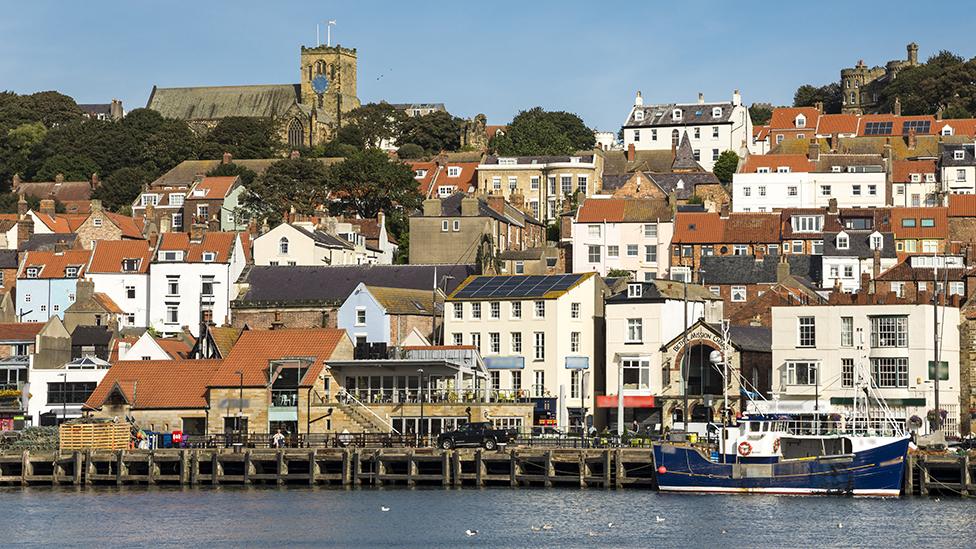
- Published6 September 2021
